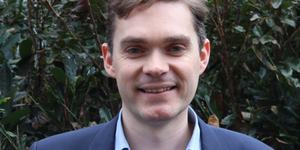In this post, Melanie Mills shares three of her learnings and reflections from the piece of work undertaken to assess emerging trends and in doing so, to map the needs of social enterprises, charities, voluntary and community sector-based organisations to ensure that our response is as relevant and appropriate as possible.
Over the last four months it has been a real challenge to acknowledge and balance the disparities that COVID-19 has brought to the forefront. There have been many, but one that hit close to home for me is the disparity between how some of my furloughed friends have been feeling – unwanted, frustrated or bored at one end to liberated and occupied in new skills and activities at the other versus personally being so stretched myself.
One of the reasons why I’ve felt this stretch is due to the new challenges we face in the social investment sector as we strive to respond. A reasonable assumption perhaps is that debt is probably not the answer for all social enterprises and charities (true) and therefore that all social investors have not been busy (false).
At Big Society Capital, we do appreciate however we are a long way from the 'keeping the lights on' situation that we know so many social enterprises and charities are experiencing.
"Not acting now would be unforgivable"; this quote from a blog written by Dan Gregory of SEUK as lockdown struck was one that resonated for me, and encapsulates the focus for us all.
Over the past few months, my colleagues and I have been heads down ensuring we can react appropriately to the crisis in terms of both emergency and recovery response. One of the ways we set out to do this was by embarking on a piece of work designed to map the needs of social enterprises, charities, voluntary and community sector-based organisations in relation to the emerging trends. This is what we found.
1. Time was and is of the essence
The Good Finance Coronavirus Hub launched within the first few days of lockdown, and has since been visited by over 70,000 users.
The Resilience and Recovery Loan Fund (led by Social Investment Business and partners and capital from Big Society Capital) launched in response to ensure social sector organisations could gain access to the Government Coronavirus Business Interruption Loan Scheme (CBILS) and was well received. I hope it will be remembered for its achievement in demonstrating that listening, learning, flexibility and iteration based on what users really need is possible. There are lots of other examples of where this is in process, but it took a pandemic to see what was achievable and the speed with which it could be delivered.
Then came Business Bounce Back Loans (BBLS) - a game changer. No social investor could (or should!) match the Government guarantee. It is encouraging to know so many social enterprises and charities have been able to take advantage of this immediate source of finance. As always though, there are examples where this has not been the case. The Social Enterprise Mark, and we, are keen to hear from you if this has not been your experience.
With this financial game changer announced, quickly thoughts moved to the next stage and support for the recovery.
2. Data and research work best when paired with stories and experiences
We can, and have, trawled intelligence from across the sector. We have literally looked at hundreds of pieces of data, and nearly as many surveys! Data and research tell us the numbers, however there is no substitute for hearing stories and real-life examples - this is the key.
We were painfully conscious of the pressure on organisations delivering on the front-line, so we turned to their supporters. We worked directly with membership bodies, infrastructure organisations and sector networks to get an understanding of emerging trends. In the last days of June, we held a virtual roundtable designed to hear their perspectives and expert knowledge. There were 22 different organisations (from Co-operatives UK and Locality, to the Small Charities Coalition and the Black South West Network) who shared their insights around what they had heard, what they expected, the surprises and the unknowns.
We collected this information using virtual post it notes (don’t knock it if you haven’t tried it – greener and more collaborative!). If you are keen to dip into these insights, you can access them via Google Jamboards here.
3. There is no point in going it alone – collaboration is the way forward
During this project, a new sense of collaboration has been born. We are proud and happy to support where others lead; be that the Social Economy Data Lab or the Social Enterprise Advisory Panel. Input from our partners has been invaluable and we continue to listen, learn and share with them.
There is no point in any of us going it alone when what we all seek is to focus on supporting social enterprises, charities, the voluntary and community sector to create the maximum impact. Whether this is through the provision of business support and membership services or through grant or repayable finance, our ultimate goal is to support the wider sector.
We know this is just the start of working together, and that this is essential on the road to recovery. The intelligence we have collected is the sum of all our parts, there was so much value in the contribution of others, and so sharing it freely was never a question.
This is why we have published both a summary of our findings (see PDF below) and for those who need and want more data a full slide deck (see PDF below). Most importantly now, is what we do with this information next.
Harry Truman, 33rd US president, said “Imperfect action is better than perfect inaction”.
We can’t guarantee we’ll always get it right, but we can promise that we are absolutely committed to do our best.
Get in touch to find out more or work together.





